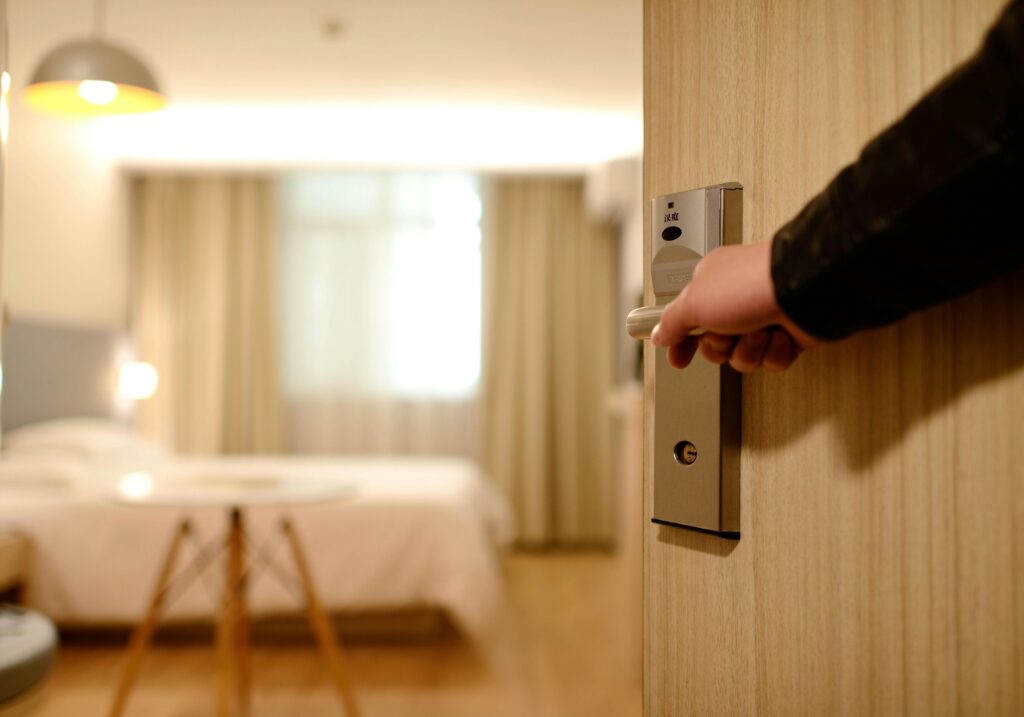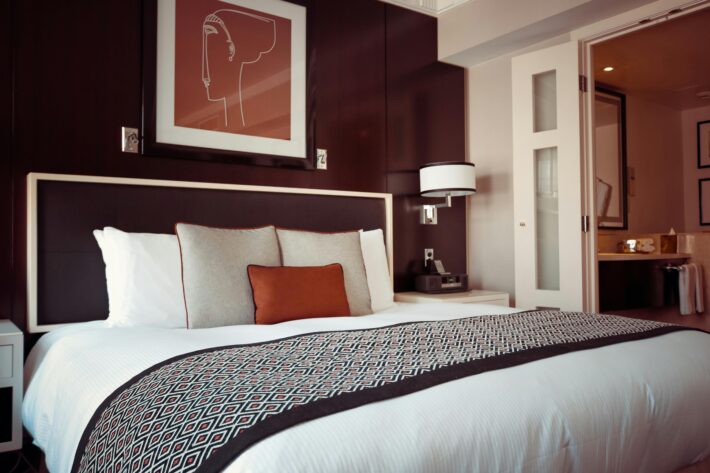How AI and Automation Transform Hotel Guest Experience

Introduction
In today’s fast-paced world, the hospitality industry is witnessing a transformative shift fueled by technology. As consumer expectations evolve, hotels and resorts are adopting innovative solutions to enhance the guest experience. This evolution is not just about keeping up with trends; it’s about creating memorable experiences that foster loyalty and repeat business. Automation in hospitality plays a crucial role in this transformation, enabling hoteliers to streamline operations, reduce wait times, and personalize services.
Consider the example of a luxury hotel chain that recently implemented an AI-driven concierge service. Guests can now communicate with a virtual assistant to book reservations, request room service, and even adjust room settings through their smartphones. This seamless integration of technology has not only improved operational efficiency but has also elevated the overall guest experience. As we delve deeper into this topic, we will explore the various strategies and best practices for leveraging automation in hospitality, highlighting real-world examples and case studies that demonstrate the tangible benefits of these technological advancements.
Key Strategies for Automation in Hospitality
1. Chatbots and AI-Powered Customer Support
Chatbots are increasingly becoming a staple in the hospitality sector. By utilizing automation in hospitality, hotels can provide 24/7 customer support, answering frequently asked questions, and guiding guests through their stay without the need for human intervention. This technology allows establishments to handle multiple inquiries simultaneously, reducing wait times and increasing guest satisfaction.
Why It Matters:
- Efficiency: Automating responses to common queries frees up staff to focus on more complex guest needs.
- Accessibility: Guests appreciate being able to get information at any time, enhancing their experience.
- Cost-Effective: Reducing the need for a large customer service team can lead to significant savings.
Implementation Steps:
1. Choose a Chatbot Platform: Select a reliable service provider that offers customizable solutions to fit your hotel’s unique needs.
2. Train the Bot: Input common FAQs and responses, and continuously refine the database based on guest interactions.
3. Integrate with Existing Systems: Ensure the chatbot can access reservation systems, room service menus, and other necessary databases.
Real-World Example:
The Hilton hotel chain has successfully integrated AI chatbots into their operations, allowing guests to check in, request amenities, and even get local recommendations through an app. This approach has improved customer engagement and streamlined the check-in process.
Key Benefits of Chatbots:
- 24/7 Availability: Always-on support enhances guest satisfaction.
- Scalability: Easily handle high volumes of inquiries, especially during peak seasons.
- Personalization: Tailor responses based on guest preferences and history.
For more insights on implementing chatbots in hospitality, visit Forbes.
2. Smart Room Technology
Another significant aspect of automation in hospitality is the advent of smart room technologies. These innovations allow guests to control various elements of their room environment, including lighting, temperature, and entertainment systems, through voice commands or mobile apps. This level of control not only enhances comfort but also promotes energy efficiency.
Implementation Steps:
1. Assess Guest Needs: Conduct surveys or gather feedback to understand what features guests value most.
2. Select Compatible Systems: Ensure that the chosen smart devices can work together seamlessly.
3. Train Staff: Educate hotel staff on how to assist guests with the technology and troubleshoot issues.
Industry Use Cases:
- Marriott International: This hotel chain has introduced smart room features that allow guests to adjust lighting and temperature settings using a mobile app. This initiative has led to increased guest satisfaction and loyalty.
- IHG (InterContinental Hotels Group): IHG has implemented voice-activated technology in some of their hotels, allowing guests to control room features with simple voice commands.
Actionable Takeaways:
1. Invest in User-Friendly Technology: Ensure that the smart systems are easy to use to avoid guest frustration.
2. Promote Sustainability: Use smart technology to monitor and manage energy usage, appealing to eco-conscious travelers.
3. Collect Data for Improvement: Use guest interactions with smart systems to gather insights that can be used to enhance future upgrades.
According to a study by Statista, the global smart hotel market is projected to reach $1.5 billion by 2025, highlighting the growing demand for such innovations.
Best Practices for Automation in Hospitality
Key Actionable Tips
1. Personalization through Data Analytics: Utilize guest data to tailor the experience. For instance, if a guest frequently orders a particular type of beverage, make it available in their room upon arrival. This level of personalization can significantly enhance guest satisfaction.
2. Integrate Systems for Seamless Operations: Ensure that your property management system (PMS), booking engine, and customer relationship management (CRM) software are interconnected. This integration allows for real-time updates and better communication between departments, leading to a smoother guest experience.
3. Regularly Update and Maintain Technology: Technology is constantly evolving. It’s essential to regularly update your systems and ensure they are functioning properly. Neglecting maintenance can lead to guest frustration and a negative impact on their overall experience.
Common Mistakes to Avoid
- Over-Automation: While automation in hospitality can enhance efficiency, over-reliance on technology can lead to a loss of the personal touch that guests value. Strive for a balance between automation and personalized service.
- Ignoring Guest Feedback: Implementing new technologies without considering guest feedback can lead to poor adoption rates. Always seek input from guests about their experiences and preferences to ensure that the systems you implement meet their needs.
Real-World Case Studies
Case Study 1: The Successful Implementation of Automation
The Four Seasons Hotel in San Francisco has embraced automation in hospitality by adopting a comprehensive digital concierge service. This service allows guests to request room service, book spa appointments, and even control their room environment from their smartphones. As a result, the hotel reported a 25% increase in guest satisfaction scores and a notable rise in repeat bookings.
Case Study 2: Learning from Mistakes
On the other hand, a mid-range hotel chain attempted to implement self-service kiosks for check-in and check-out. However, due to inadequate staff training and poor kiosk design, guests experienced confusion and frustration. The failure to consider user experience led to negative reviews and a decline in customer satisfaction. The hotel learned from this mistake and opted for a hybrid approach, combining kiosks with staff assistance to ensure a smoother process.
Conclusion
The integration of automation in hospitality represents a significant opportunity for hotels to enhance guest experiences and streamline operations. From chatbots to smart room technology, the strategies discussed in this article highlight the potential for improved efficiency and guest satisfaction. However, as with any technological advancement, it is crucial to strike a balance between automation and the personal touch that guests cherish.
By embracing these strategies and learning from both successes and failures, hotels can position themselves as leaders in the industry, ready to meet the evolving expectations of today’s travelers. As you consider implementing automation in your hotel operations, remember to prioritize guest needs and feedback to ensure a seamless, memorable experience.
For more insights, check out our blog or contact us for expert guidance.


